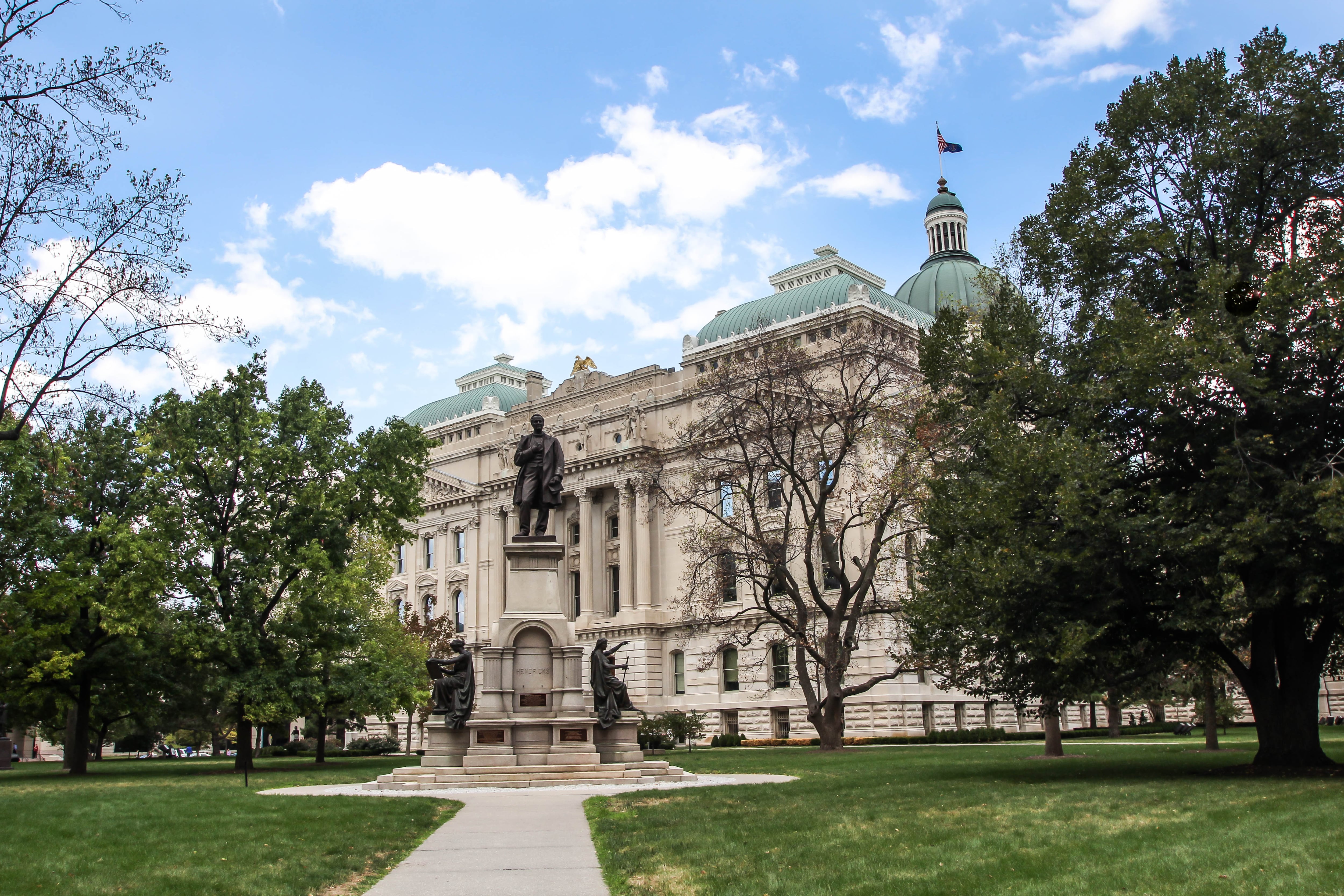Sign up for Chalkbeat Indiana’s free daily newsletter to keep up with Indianapolis Public Schools, Marion County’s township districts, and statewide education news.
Indiana lawmakers want to catch their breath.
After two consecutive sessions of headline-grabbing legislation that put the state in the national spotlight for trying to restrict what could be taught in classrooms, and expanding vouchers to nearly every student, legislative leaders say the public should expect a more measured approach to the 2024 session, which begins Jan. 8.
Without a budget to put together during the short session, which ends in March, lawmakers will instead “build on recent achievements,” like last year’s sweeping expansion of work-based learning for high schoolers, House Speaker Todd Huston said on Organization Day Tuesday, when lawmakers preview the upcoming session.
Lawmakers also intend to further tackle literacy issues — after passing a law last year to require the science of reading — specifically by addressing Indiana’s third grade retention laws. Currently, Indiana requires retaining students who don’t pass the state reading test unless they meet certain criteria.
“Passing them along is a terrible disservice to the student,” Huston said in his Tuesday remarks.
Lawmakers will also consider a proposal to address antisemitism on college campuses, Huston said.
While leadership aims to have a quieter “transition year,” there’s no guarantee that the controversial social issues that have marked the last two sessions will take a backseat in 2024. Indeed, without a budget to pass, lawmakers may have more time to bring forward bills like the “divisive concepts” bill that headlined the last short session in 2022.
Next year’s elections will also factor into lawmakers’ decisions. All 100 seats in the Indiana House of Representatives and half the seats in the state Senate will be up for election. Republicans hold a supermajority in both chambers.
“Lots of bills will be filed,” Huston said at an Indiana Chamber of Commerce event Monday.
Here’s what lawmakers have said to expect on education policy next year.
Literacy, careers, and absenteeism in the spotlight
Huston and Senate President Pro Tempore Rodric Bray each said this week that their caucuses would focus on addressing literacy. Last year, the legislature passed landmark laws mandating curriculum and teacher training based in the science of reading, and forbidding instruction that uses models like “three-cueing.”
Huston and Bray indicated that legislation this year would focus on keeping students who don’t pass the state reading exam in third grade. Current Indiana law requires schools to retain those students unless they’ve been retained twice before, or if they’re English learners or have disabilities and receive approval from their educators to advance to the fourth grade.
Lawmakers will also look to expand last year’s laws on work-based learning, which allow students to receive Career Scholarship Accounts for workforce training outside of their schools. Huston said his caucus would once again push to allow students to use state scholarships earmarked for postsecondary education for work-based training as well.
Further tweaks to allow for more applied learning and apprenticeships could be coming as well.
At a legislative preview event Monday hosted by the Indiana Chamber of Commerce, Huston and Bray also highlighted the need to address chronic absenteeism, which remains higher than before the pandemic.
“Anything good we do in the education system, for those kids who aren’t there, they’re not going to have success,” Bray said.
Bills about divisive social issues could return
In recent years, Indiana lawmakers have attracted national attention for a series of controversial education-related bills, including one to ban the teaching of “divisive concepts” related to race that failed in 2022, and another that banned “harmful materials” from school libraries that passed in 2023.
Lawmakers have also passed legislation aimed at transgender youth, including one that prohibits transgender girls from playing on girls’ sports teams in 2022, and another that bans health care providers from providing gender-affirming services to anyone under 18 in 2023.
Leaders of the Democratic caucus said lawmakers should leave such issues alone during the 2024 session.
“We don’t need to bog down this session with [critical race theory] and how we feel about affirmative action,” said Senate Minority Leader Greg Taylor, an Indianapolis Democrat.
One piece of controversial legislation likely to make a comeback is the push to make school board elections partisan. Previous versions of the bill have divided lawmakers and drawn public backlash, but momentum for the idea grew between 2022 and this year.
Chamber calls for more action on child care
In a legislative preview event Monday, the Indiana Chamber of Commerce called for the state to once again focus on access to child care as an avenue toward economic development.
Lawmakers passed several laws on child care last year, including expanding eligibility for the On My Way Pre-K program and approving a third-party review of child care regulations, with the intent to streamline administrative burdens on providers.
The Chamber of Commerce called for an acceleration of this review, as well as other changes, like allowing child care workers to automatically qualify for child care vouchers.
This summer, the interim committee on Public Health, Behavioral Health and Human Services also approved a draft report of recommendations centered on testimony from child care providers who raised concerns about the affordability and access.
Bray referenced this report Monday when discussing how the Senate may tackle the child care question in 2024.
Lawmakers can begin filing bills now before reconvening in January.
Aleksandra Appleton covers Indiana education policy and writes about K-12 schools across the state. Contact her at aappleton@chalkbeat.org.





